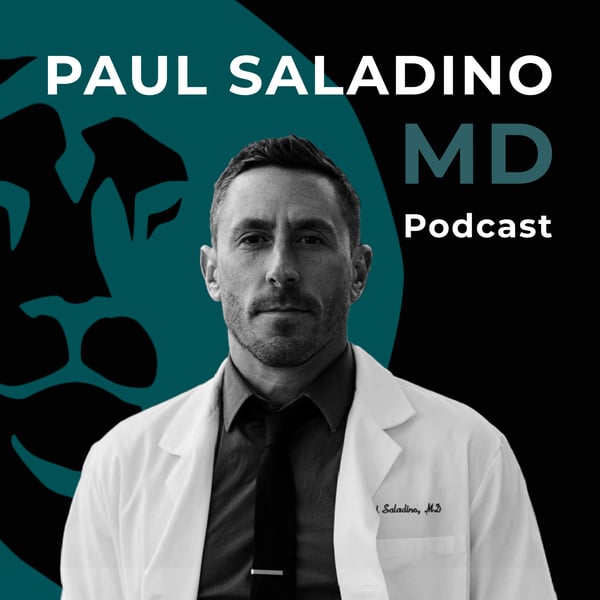Controversial Thoughts: Is Honey Really the Same As Sugar?
Paul Saladino MD podcast
Paul Saladino, MD
4.8 • 2.7K Ratings
🗓️ 5 March 2021
⏱️ 34 minutes
🧾️ Download transcript
Summary
Oooo guys! This is a good one, and it’s going to ruffle some keto-feathers…
There is a tendency within nutritional circles to fall prey to reductionist thinking…
We know sugar is bad, right? Therefore any foods (not matter how evolutionarily consistent) that contain sucrose, or the evil-fructose are bad for you, too, right?
Not so fast seabass!
These apparent evolutionary inconsistencies have always puzzled me and caused me to wonder about how foods like honey or fruit might be different than pure sucrose, or if your body’s response to fructose might be dependent on the food it’s in…
Imagine that! Food might actually be more complex than just calories, and macronutrients…
It might actually have different effects on your body when it’s a “whole” food like honey, or even sea salt vs refined sodium chloride…
Check out this week’s edition of Controversial Thoughts to journey with me down all of these rabbit holes…
I bet you will be surprised at what we find! Welcome to #theremembering
Transcript
Click on a timestamp to play from that location
| 0:00.0 | What is up you guys? Welcome to yet another edition of controversial thoughts. |
| 0:04.4 | Costa Rica version. One of the amazing things about being able to get into the ocean in the morning |
| 0:11.4 | and surf for sunrise and then surf at sunset is it gives me a lot of space to relax and then I come back, |
| 0:18.5 | pretty rejuvenated and I get into some fun research rabbit holes during the day after I've gotten my saltwater, |
| 0:25.8 | my vitamin D, my grounding and my time in nature. So one of my favorite podcasts that I've heard in the |
| 0:32.5 | past is Josh Whiteskin and Tim Ferriss and Josh Whiteskin's quote was, you have to turn it on to |
| 0:37.6 | turn it off or you have to turn it off to turn it on is the more accurate translation of that. |
| 0:42.6 | So I love being here right now in Costa Rica traveling and turning it off so that I can turn it on |
| 0:49.3 | and do a bunch of interesting research that hopefully benefits you all. So I went down some really |
| 0:54.2 | fun rabbit holes that I want to share with you guys today. One of the great fallacies that I see |
| 1:00.6 | over and over in the health space today is reductionist thinking when it comes to food and nutrients |
| 1:07.6 | in food or macronutrients in food. Specifically I'm going to start by talking about fructose and glucose |
| 1:16.0 | and ask the question if honey is different than sugar and I'm obviously talking about raw organic honey |
| 1:23.8 | and you'll see why in these controversial thoughts. And then I'm going to segue quickly to the question |
| 1:29.0 | of is all salt created equally with the overarching premise here being that reductionist thinking in |
| 1:36.7 | nutritional studies or nutritional paradigms doesn't work and fails us. And so we have to be very |
| 1:43.1 | careful of studies that like to look at isolated fructose, isolated glucose, isolated sodium chloride |
| 1:50.7 | administration and compare those with studies where actual real unheated honey is used like our |
| 1:58.8 | ancestors would have eaten like the hodza ate like I ate with the hodza in Tanzania a few weeks ago |
| 2:06.8 | and ask the question is that honey that's coming out of a treat really bad for me? How do I reconcile |
| 2:13.7 | that with some studies in mice or rats that say fructose is bad for humans? And then furthermore |
| 2:19.8 | what about sea salt? Our ancestors certainly would have gathered this from the ocean. It would have |
... |
Please login to see the full transcript.
Disclaimer: The podcast and artwork embedded on this page are from Paul Saladino, MD, and are the property of its owner and not affiliated with or endorsed by Tapesearch.
Generated transcripts are the property of Paul Saladino, MD and are distributed freely under the Fair Use doctrine. Transcripts generated by Tapesearch are not guaranteed to be accurate.
Copyright © Tapesearch 2025.

